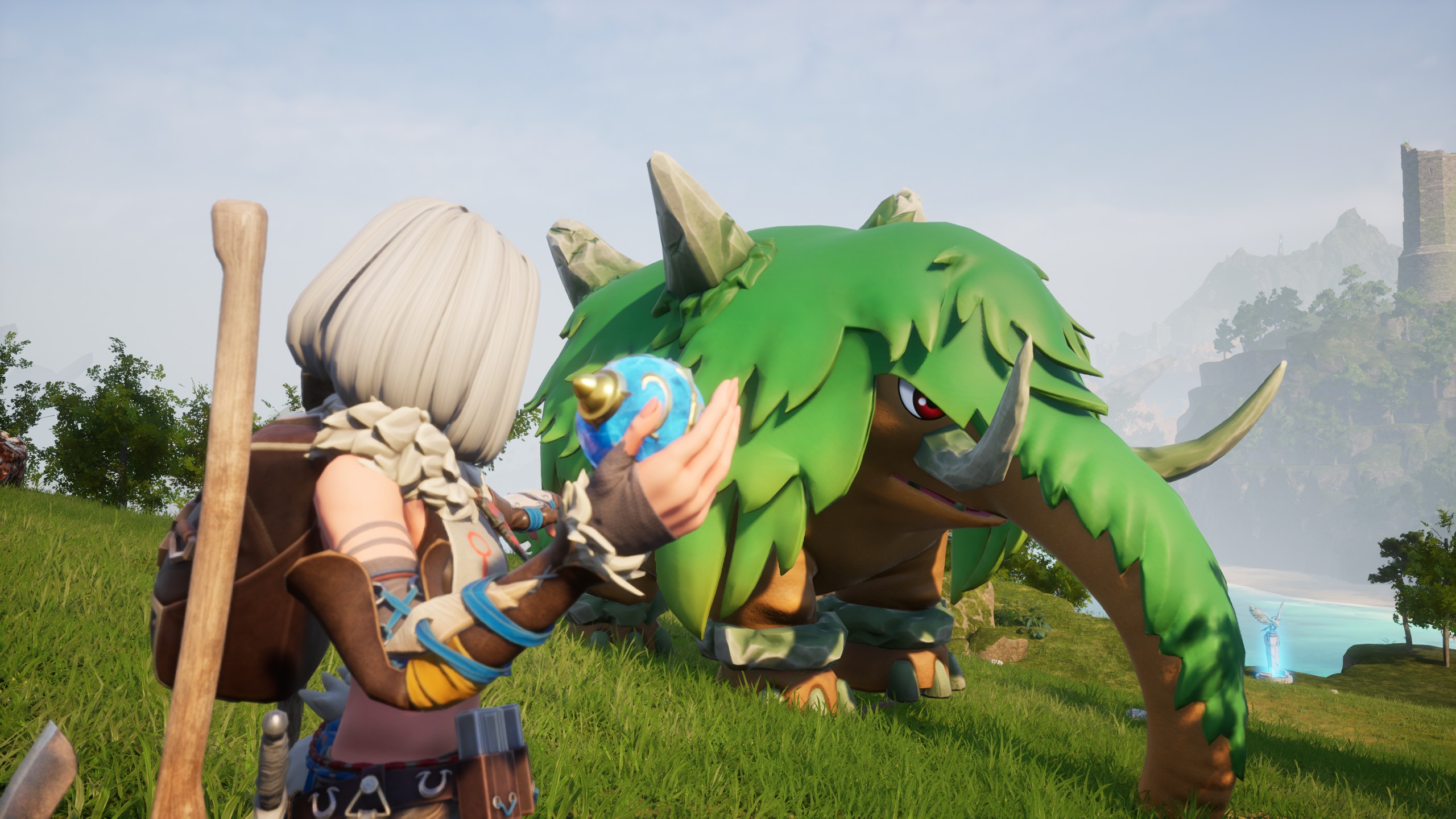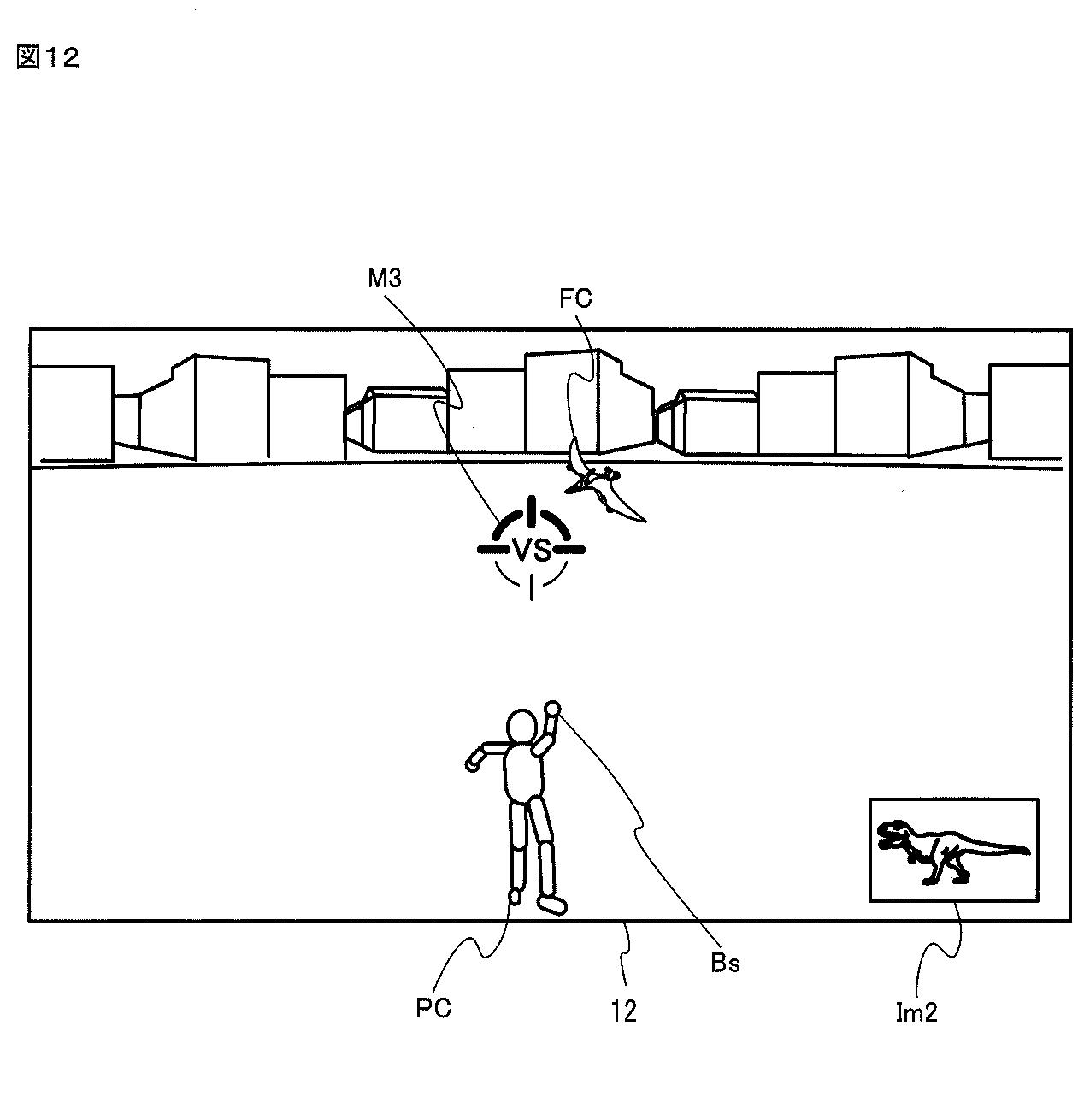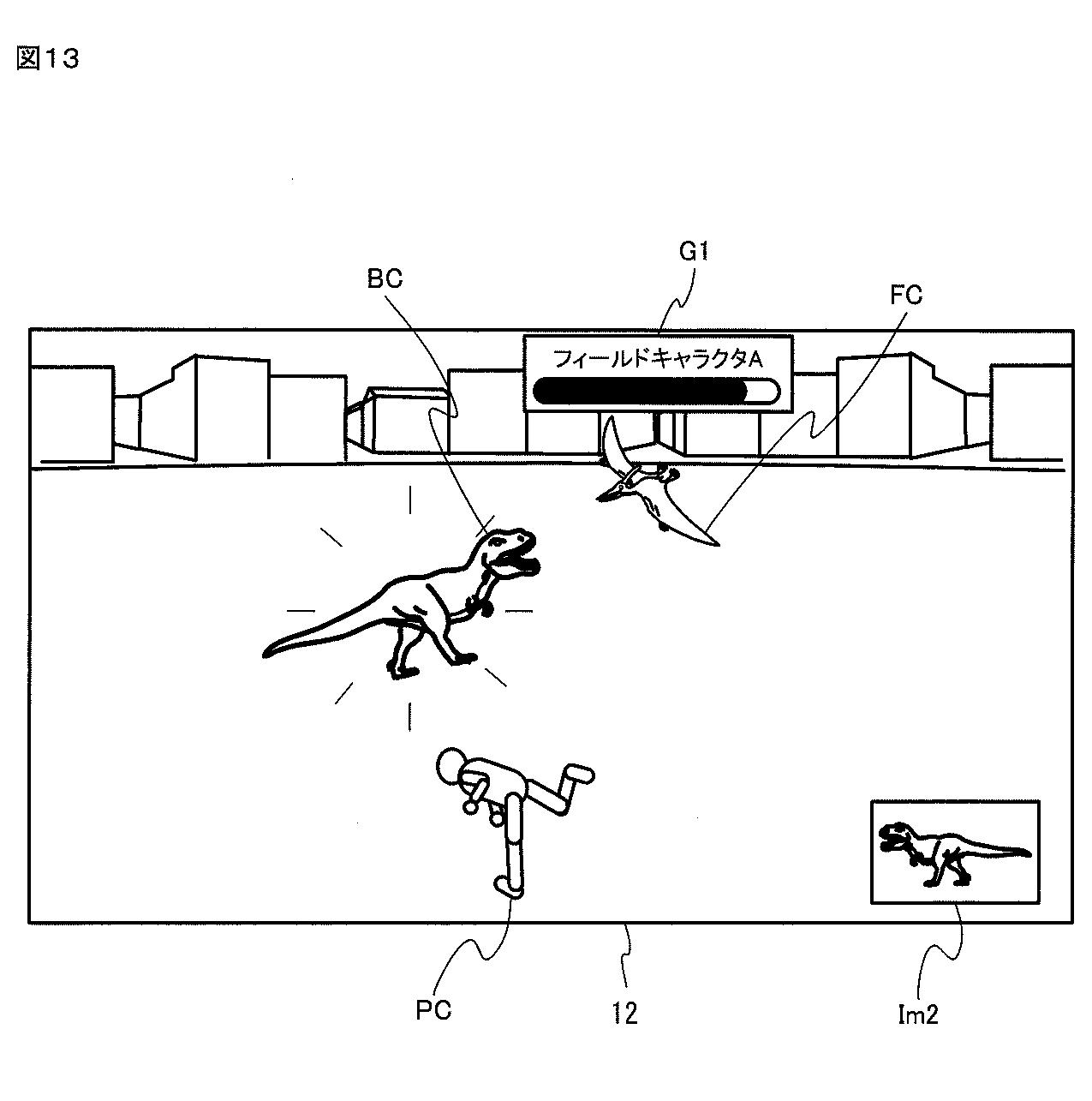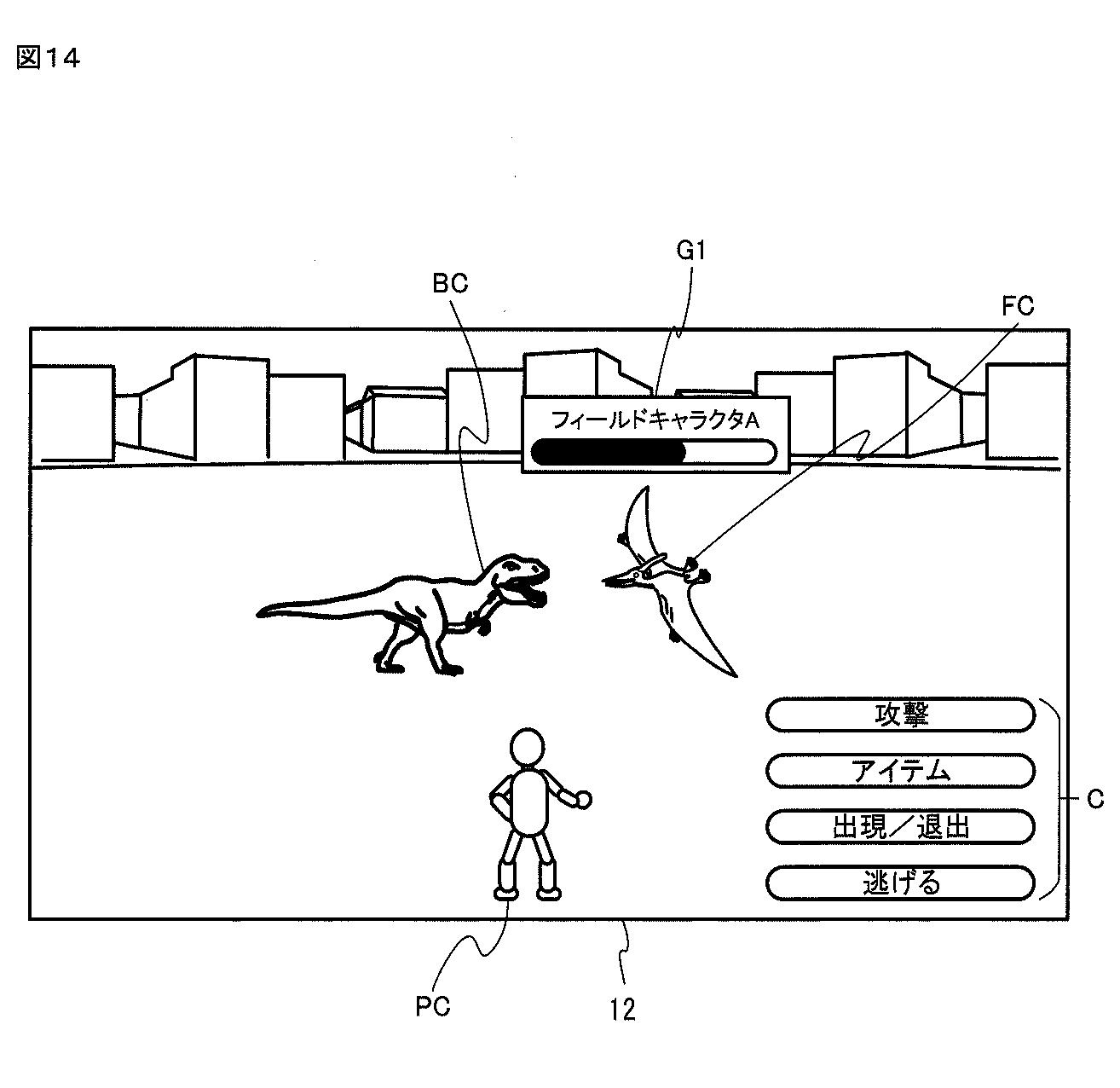Is Nintendo suing the Palworld devs over a patent on throwing Poké Balls?
Opening the Pal Sphere-shaped Pandora's box of patent filings.

Yesterday, Nintendo announced that it had finally turned its baleful gaze on Palworld, and would be pursuing legal action in the Tokyo District Court against developer Pocketpair over alleged patent infringement. But which patents? Nintendo's press release accuses Palworld of infringing on "multiple patent rights," but Pocketpair says it doesn't know which patents it's supposed to have violated, and Nintendo hasn't elaborated. While we wait for more specifics on the lawsuit, I've been digging into patents held by Nintendo and The Pokémon Company to see where Mario's lawyers might be anchoring their case. After a crash course in patent research, I've got a strong suspicion that Nintendo's bringing Pocketpair to court over Poké Balls.
One point of clarification before we continue: It's definitely not about Palworld's monsters looking similar to Pokémon. If you caught wind of the many conversations about Palworld's arguable (or arguably blatant) imitation of Pokémon designs, you might assume that'd be the basis of Nintendo's lawsuit. That, however, would be a dispute over copyright, which protects original creative works of authorship, like books, music, and artistic designs. While Nintendo announced back in January that it intended to "investigate and take appropriate measures to address any acts that infringe on intellectual property rights related to the Pokémon," an eventual copyright suit seemed unlikely, even for a company with such an infamously itchy legal trigger finger. Because the claims of copyright suits are so subjective, they're notoriously difficult to pull off; chances are, even Nintendo's nuclear-grade legal armory wouldn't guarantee success if it brought Pocketpair to court over knockoff Fauxkémon.
Instead, Nintendo says it's suing Pocketpair over patent infringement. Rather than protecting creative works, patents protect innovations, inventions, and processes. By filing a patent infringement lawsuit, Nintendo's not going after Pocketpair for Palworld's creature designs, at least not directly. Instead, it's alleging that Palworld's is illegally imitating specific, patent-protected software innovations.
After sifting through Nintendo's patents, my best guess is that the lawsuit is about US patent 20230191255, based on Japanese patent application 2021-208275, which grants Nintendo protections on technology relating to "game program-storing media, game systems, game apparatuses, and game processing methods that execute a process on a character in a virtual space."
Buckle up. There's patent language ahead. You've been warned.
The patent in question appears to be from a series of applications Nintendo filed during the development of Pokémon Legends: Arceus, which broke from tradition by letting the player encounter, battle, and catch Pokémon in the overworld, rather than transitioning into a separate battle screen. While the filing acknowledged that "there has conventionally been a game program that allows a player character to catch a character in a virtual space and possess the character"—ie, the creature-collecting and battling gameplay so ubiquitous at this point that not even Nintendo could hope to patent it—that type of game allowed the player "to catch a character only during a fight, and does not allow a player character to catch a character on a field."



Nintendo's successful patent filing managed to gain protections on what it claimed was an innovation on the formula, illustrated via some delightful representative drawings showing a mock battle between a t-rex and a pterodactyl: Where before players could only battle and catch creatures during fights, Nintendo had devised a new "storage medium storing game program, game system, game apparatus, and game processing method" allowing the player to perform "an action of launching" to either "catch a field character or cause a fighting character to fight against a field character."
Keep up to date with the most important stories and the best deals, as picked by the PC Gamer team.
In other words, Nintendo successfully secured a patent on throwing Poké Balls at stuff while you're running around.
While I'm a big fan of "performing an action of launching a fighting character that fights against a field character"—been doing it my whole life, really—it's a concept so broad that Nintendo could be accused of patent trolling for claiming it. Unfortunately for Pocketpair, Nintendo has claimed it, and Palworld's take on it might cut things a bit too close.
In Palworld, you gather orbs to throw at creatures to try and capture them. The orbs wobble as the creatures struggle against them, playing a jaunty success jingle if you succeed. Then, you can throw the orbs to deploy your gathered monster party in battle against other creatures. They're not Poké Balls, though. They're Pal Spheres.
View post on imgur.com"
While the cheeky rebranding might be an "I'm not touching you"-tier of legal shielding, it's probably enough to dodge a copyright claim. However, it's another matter when the Pal Spheres behave almost indistinguishably from their patent-protected Pokémon Legends: Arceus counterparts. The launching, catching, battling, and resource-gathering match the descriptive language in Nintendo's patent pretty closely, however over-broad that description might be. And while the, let's say, "strongly-inspired" character designs might not be legally actionable on their own, there's a world where they might provide Nintendo with supporting evidence for illustrating Pocketpair's willingness to imitate protected intellectual property.
That's for the legal experts to hash out, though—after all, there's a chance this could all shake out with a ruling that Nintendo's claim isn't actionable. According to the World Intellectual Property Organization, of the patent infringement claims that came before the Tokyo and Osaka District Courts and weren't resolved in settlements, 44% were dismissed, while only 21% had the claim upheld.
If I were in the process of developing a Pokémon-like that'd risk the legal ire of the Nintendo juggernaut, though, I might be trying to color a little farther outside the lines.
Lincoln has been writing about games for 11 years—unless you include the essays about procedural storytelling in Dwarf Fortress he convinced his college professors to accept. Leveraging the brainworms from a youth spent in World of Warcraft to write for sites like Waypoint, Polygon, and Fanbyte, Lincoln spent three years freelancing for PC Gamer before joining on as a full-time News Writer in 2024, bringing an expertise in Caves of Qud bird diplomacy, getting sons killed in Crusader Kings, and hitting dinosaurs with hammers in Monster Hunter.

